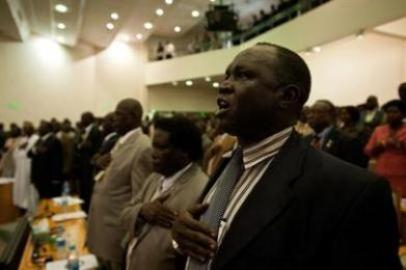Juba parliament splits over removal of fuel subsidy
February 10, 2017 (JUBA)- South Sudanese lawmakers have expressed mixed reactions about removal of fuel subsidy, with some welcoming the decision and others saying it would increase the prices.

“What happened to exchange rate which people thought would equalize the exchange rate and reduce the black dealings,” asked the lawmaker?
The lawmaker said he and several other members expressed different views when the request was presented to the house by the minister of finance but their views were ignored.
“Although we were the majority, the minority views prevailed and I believe this is what the minister is citing as the approval of the parliament. If the speaker and some members have accepted his request, it does not mean the (majority of MPs) have accepted. How did MPs accept it this request. Was it put to voting in the house? No. It was not,” he stressed.
While the legislators deny approving the request, Finance Minister Stephen Dhieu Dau said on Thursday and repeated it Friday that his institution was now working on the decision of the parliament.
“We are working out how to address the issue of fuel shortage now that the transitional national legislative assembly has given Nilepet a permission to remove fuel subsidy”, Minister Dau told reporters on Friday.
He insisted that the decision to remove fuel subsidy was in the interest of the nation and was the reason it was included his request during the presentation of annual budget for this year.
The government-run oil company procures fuel outside the country and sells a litter once it is imported at the cost of 22 pounds at the petrol filling stations. But citizens have always complained of lack of fuel at the designated fuel stations, even when they stay in line for hours.
Many claims senior government officials and military officers use their influence and privileges by the virtues of their offices to get fuel from the Nilepet, a commercial arm of the government sends it to the black market where it is sold at the prices higher than the official charge.
(ST)
